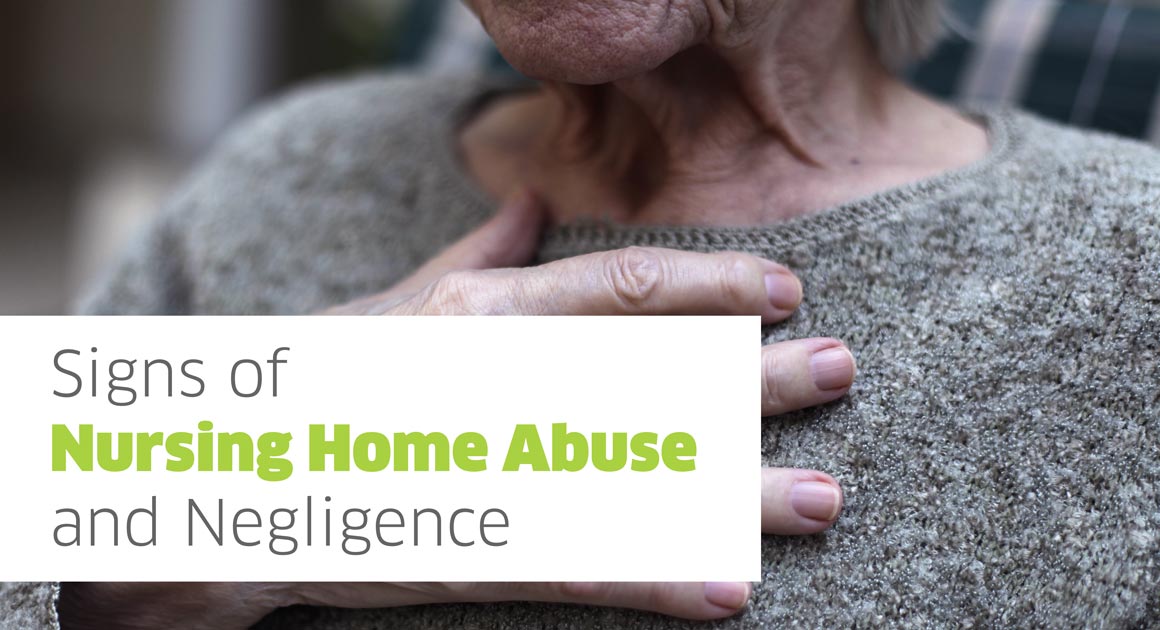There are an estimated 1.5 million people living in nursing homes and as the nation continues to age, the number of elders living in nursing homes will too. The decision to put a loved one who has difficulty living independently in a nursing home is often a difficult choice for family members. Unfortunately, it is not uncommon for family members to overlook signs of abuse or neglect and attribute them to signs of aging. As a family member, it is important to be able to recognize signs of nursing home abuse and negligence before it’s too late. Nursing home abuse and negligence can occur in several ways and the signs and symptoms may or may not be obvious. It is important as a family member visiting your loved one at a nursing home, you observe more than just your family member. You should report any evidence of physical and/or emotional abuse, sudden changes in behavior, or any other warning signs. Signs of Physical Abuse
- Unexplained bruises
- Scratch marks or other abrasions
- Broken bones or joint dislocations
- Unexplained pressure ulcers or wounds
- The nursing home caregiver that refuses to leave the room when the family is present
- Inconsistent explanation of an injury
- Fear of staff
Signs of Emotional Abuse
- A sudden change in cognitive behavior such as withdrawal, anger, or becoming easily distressed
- The onset of unusual behaviors such as rocking, biting, spitting
- The family member is isolated from rest of group
- Fear of staff
Signs of Neglect
- Soiled clothing
- Unexplained pressure ulcers, wounds or bedsores
- The absence of necessary medical devices such as glasses, hearing aid, or out of reach ambulatory devices such as a cane or walker
- Unclean smell
Report Nursing Home Abuse and Negligence Reporting nursing home abuse and negligence is the first step in helping your loved one. You can begin by contacting the nursing home administrators, doctor, or call 911 if you witness the abuse. It is important to document with a photograph or written description of what you observe with an obvious injury or change in behavior. If able, write down your loved ones account of the abuse. Signs of nursing home abuse and negligence may or may not be obvious and sometimes your loved one is unable to report what they are experiencing at the hands of their caregivers. If you suspect that your loved one has been a victim of nursing home abuse and negligence and legal action is the right choice, call Reginald Keith Davis, Attorney at Law for a confidential, free consultation. Telephone: (913)-299-8789

